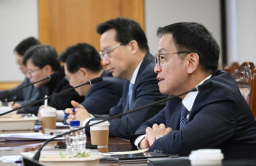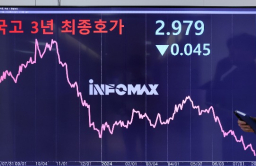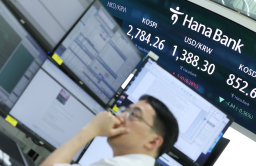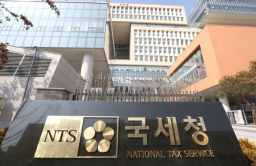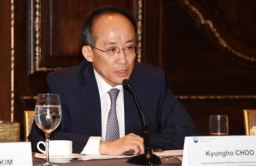-
KOSPI 2697.67 -22.97 -0.84%
-
KOSDAQ 734.35 -1.94 -0.26%
-
KOSPI200 359.62 -3.46 -0.95%
-
USD/KRW 1381 -7.00 0.51%
South Korea allows foreigners to trade treasuries via omnibus accounts
Regulations
South Korea allows foreigners to trade treasuries via omnibus accounts
Foreign banks are now permitted to short Korean treasury bonds to offshore investors
By
Jan 27, 2025 (Gmt+09:00)
2
Min read
News+

South Korea will allow foreign investors to trade South Korean treasury bonds via omnibus accounts under the names of global custodians or asset managers, eliminating their need to open separate accounts with individual asset managers.
The Financial Supervisory Service (FSS) on Jan. 24 announced the scrapping of the rule that required offshore bond investors to trade Korean treasuries fund-by-fund by opening separate securities accounts.
Before the Foreign Exchange Transactions Regulations revision, offshore investors also needed to provide their own identifiers, either investor registration certificates or legal entity identifiers, when trading Korean treasuries.
As of Jan. 24, global asset managers are permitted to trade, hold, settle and report transactions under their own names on behalf of their clients.
The move is the latest in a series of Seoul's deregulation efforts ahead of the inclusion of Korean government bonds on the FTSE World Government Bond Index (WGBI) in November of this year.
Since June of last year, foreign investors can settle Korean treasuries via omnibus accounts in two major European securities clearing houses: Euroclear Bank and Clearstream Banking.
In January 2023, Korea abolished taxes on interest and capital gains for foreigners investing in Korean treasuries.
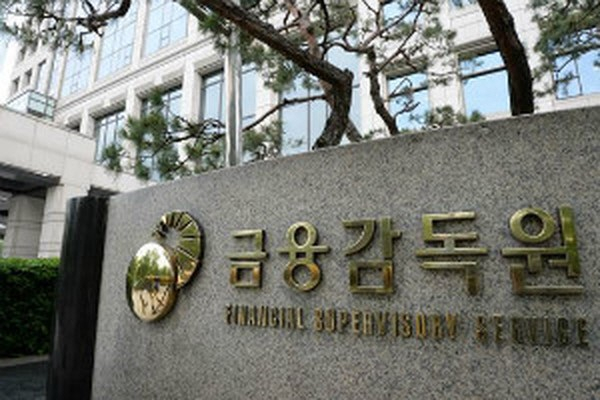
SHORT SELLING OF TREASURIES
Foreign banks are now permitted to short Korean treasuries to offshore investors and buy them back from domestic banks, the FSS said in a statement that outlined the aforementioned deregulation.
The regulator stated that their short selling, categorized as offshore trades, would not impact the domestic debt market.
Likewise, Korean banks are now able to short treasuries for limited trading and buy them back in the domestic treasury market.
Seoul will also revise its laws to allow foreign banks to buy Korean treasuries from offshore investors and sell them to domestic banks before settling the foreign investors' purchases.

FOREIGN NET BUYING OF TREASURIES
Meanwhile, foreign investors have been scooping up Korean government bonds since the start of this year.
They have bought a net 4.3 trillion won ($3 billion) worth of three-year treasuries this year as of Jan. 24, according to the Korea Exchange.
That is equivalent to their net purchases in the country's treasury bond market for all of 2024. The figure contrasts with their net selling of 1.9 trillion won in government bonds of the same maturity in the same period last year.
Analysts said their net purchases reflected anticipation of the Bank of Korea’s interest rate cut as early as February.
Write to Seok-Cheol Choi and Ik-Hwan Kim at dolsoi@hankyung.com
Yeonhee Kim edited this article.
More To Read
-
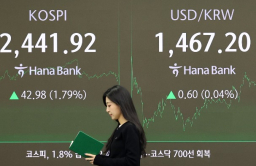 Foreign exchangeSouth Korea expands foreign banks' access to forex market
Foreign exchangeSouth Korea expands foreign banks' access to forex marketJan 03, 2025 (Gmt+09:00)
-
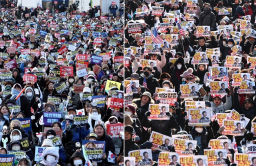 Business & PoliticsKorea sharply cuts 2025 growth forecast, opens door for extra budget
Business & PoliticsKorea sharply cuts 2025 growth forecast, opens door for extra budgetJan 02, 2025 (Gmt+09:00)
-
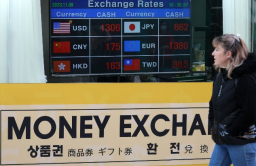 Foreign exchangeGlobal investment banks see Korean won staying weak in 2025
Foreign exchangeGlobal investment banks see Korean won staying weak in 2025Dec 31, 2024 (Gmt+09:00)
-
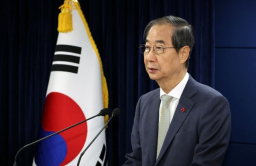 Business & PoliticsSouth Korea’s Acting President Han impeached; Stocks, won plummet
Business & PoliticsSouth Korea’s Acting President Han impeached; Stocks, won plummetDec 27, 2024 (Gmt+09:00)
-
Dec 20, 2024 (Gmt+09:00)
-
Dec 16, 2024 (Gmt+09:00)
-
Nov 24, 2024 (Gmt+09:00)
-
Jul 30, 2024 (Gmt+09:00)
-
Jun 21, 2024 (Gmt+09:00)
-
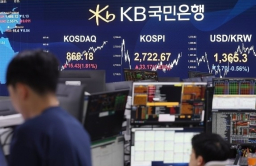 Korean stock marketKorea's short-selling ban impedes MSCI index upgrade
Korean stock marketKorea's short-selling ban impedes MSCI index upgradeJun 07, 2024 (Gmt+09:00)
-
Mar 26, 2024 (Gmt+09:00)
-
Oct 17, 2022 (Gmt+09:00)



